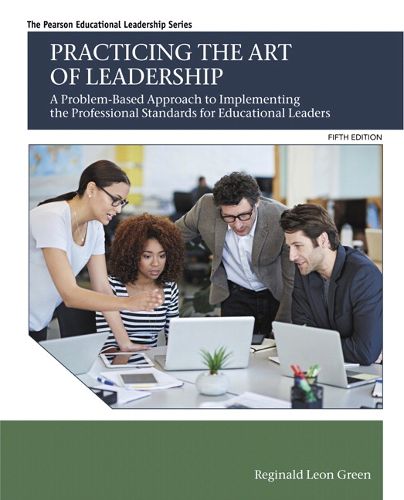Readings Newsletter
Become a Readings Member to make your shopping experience even easier.
Sign in or sign up for free!
You’re not far away from qualifying for FREE standard shipping within Australia
You’ve qualified for FREE standard shipping within Australia
The cart is loading…






For courses in Introduction to Educational Administration and Leadership, Principalship, and Educational Leadership.
What today’s educational leaders need to know, what they should be able to do, and how they should behave in order to lead schools that address the needs of all students.
This resource presents success-proven practices, processes, and procedures grounded in time-tested theories, current research, and the creative, innovative, real-life experiences of educators in the field who are transforming underperforming schools into thriving educational learning communities. An invaluable guide to what today’s educators need to know, how they need to do it, and the ways they should behave as exemplary leaders, the book takes into account the many changes in the standards, competencies, and accountability movements that have ushered in a new set of demands, requirements, and expectations for today’s educational leaders.
Complete coverage of the new topics, methods, and techniques effective educational leaders are using to address these changes appear throughout the text and are aligned with the 2015 Professional Standards for Educational Leaders, formerly known as ISLLC Standards.
This new edition features opportunities for reflective practice through the use of scenarios depicting actual school issues, occurrences, and the behavior of practicing school leaders to help readers acquire knowledge and skills that can be used to build a solid framework for their own practice. The book’s focus on how to use the Professional Standards for Educational Leaders helps educators develop teacher capacity, create professional learning communities, effectively manage organisational resources, construct appropriate organisational policies and systems, lead instructional change, and engage in other deep and meaningful work outside of the classroom and in the community.
$9.00 standard shipping within Australia
FREE standard shipping within Australia for orders over $100.00
Express & International shipping calculated at checkout
For courses in Introduction to Educational Administration and Leadership, Principalship, and Educational Leadership.
What today’s educational leaders need to know, what they should be able to do, and how they should behave in order to lead schools that address the needs of all students.
This resource presents success-proven practices, processes, and procedures grounded in time-tested theories, current research, and the creative, innovative, real-life experiences of educators in the field who are transforming underperforming schools into thriving educational learning communities. An invaluable guide to what today’s educators need to know, how they need to do it, and the ways they should behave as exemplary leaders, the book takes into account the many changes in the standards, competencies, and accountability movements that have ushered in a new set of demands, requirements, and expectations for today’s educational leaders.
Complete coverage of the new topics, methods, and techniques effective educational leaders are using to address these changes appear throughout the text and are aligned with the 2015 Professional Standards for Educational Leaders, formerly known as ISLLC Standards.
This new edition features opportunities for reflective practice through the use of scenarios depicting actual school issues, occurrences, and the behavior of practicing school leaders to help readers acquire knowledge and skills that can be used to build a solid framework for their own practice. The book’s focus on how to use the Professional Standards for Educational Leaders helps educators develop teacher capacity, create professional learning communities, effectively manage organisational resources, construct appropriate organisational policies and systems, lead instructional change, and engage in other deep and meaningful work outside of the classroom and in the community.